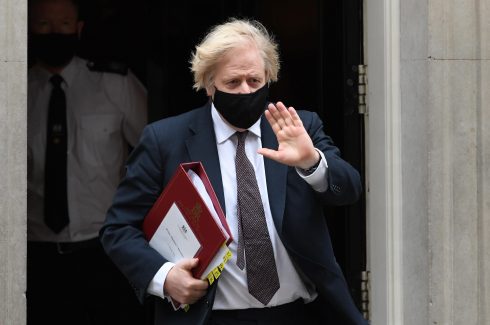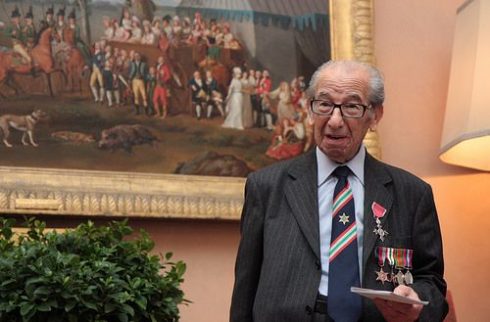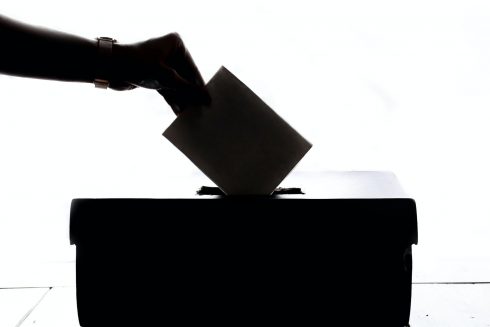THE 15-year cut-off date that prevents an estimated one million overseas Brits from voting in UK parliamentary election is about to be scrapped, writes Sue Wilson of Bremain in Spain.
Unless you were paying very close attention, you may have missed a reference to our voting rights in Chancellor Rishi Sunak’s recent Budget announcement. Hidden away in the small print on page 48 was the following government statement:
“Overseas Electors – The government is providing an additional £2.5million to remove the limit preventing British citizens who live overseas from voting after 15 years”
This welcome news followed a recent announcement that the government’s manifesto commitment – to scrap the 15-year rule – would be included in the forthcoming Electoral Integrity Bill, expected to be laid before parliament later this year.
The 2019 Conservative manifesto stated, “We will make it easier for British expats to vote in Parliamentary elections, and get rid of the arbitrary 15-year limit on their voting rights”.

Although the news of the bill and budget commitments were largely welcomed, there was naturally considerable scepticism too. Brits long denied their democratic voting rights were quick to point out the failed government promises of the past. This was not, after all, the first time such a manifesto promise had been made. Nor the second.
Over 5 million UK nationals around the world have been denied their right to vote, some for years, if not decades.
For the last 25 years, veteran campaigner, Harry Shindler, MBE, has been championing the fight for his right to vote in British elections. Harry, who has lived in Italy for 40 years, and will turn 100 in July, does not share the scepticism felt by many.
Harry told me, “This government, unlike others that were in power before, have the numbers to make it happen”.
When I asked him what he would say to those that doubted the government’s word, he replied, “Have faith! This thing will happen after 25 years of campaigning. With the promises made this time, I have every confidence”.
Harry is so confident, in fact, that he is already planning a celebratory dinner in Westminster for when his decades-long fight is finally over.

The Electoral Integrity Bill’s passage through parliament may not be quite as straightforward as the government would hope, as it includes controversial proposals regarding the need for ID when casting ballots.
Despite government claims that the new measures will “strengthen the integrity of UK elections”, campaigners disagree, claiming that millions will be prevented from exercising their right to vote.
The government claim the new ID cards would prevent electoral fraud. However, an Electoral Commission report suggested there was no evidence of electoral fraud in the last general election.
Darren Hughes, Chief Executive of the Electoral Reform Society said, “rather than pulling up the drawbridge to large groups of voters, ministers should deal with bringing in the nine million people who are missing from the electoral register”.
British citizens living abroad make up a significant portion of those “missing” from the register.
After the 2015 general election, the government made a commitment to scrapping the 15-year rule.
The following year, they produced a policy document entitled “A democracy that works for everyone”.
In 2017, a further promise appeared in the Conservative Party Manifesto, followed by the “Overseas Voters Bill 2017-2019”.
The bill failed when it was “talked out” by serial filibusterer, Tory MP Philip Davies – not because he was opposed to the concept, but because he was against Private Members Bills on principle.
I remember it well – I was observing first-hand from the public gallery of the House of Commons.
What is different this time is that the new bill is a government-sponsored bill, which cannot therefore be “talked out”. Not to mention that we have the budget commitment for additional funding, and the government have an 80-seat majority.
In correspondence received from the Cabinet Office in 2020, the government recognised our strong links with our homeland. They said that “most British citizens overseas retain deep ties to the United Kingdom.
Many still have family there, some will return there, others are drawing a British pension after a lifetime of hard work and some have fought for our country”. I await, with interest, a response to my latest enquiries asking the Cabinet Office for an update.
The right to vote is widely recognised as a fundamental human right.

Article 21 of the Universal Declaration of Huma Rights states that, “Everyone has the right to take part in the government of his country, directly or through freely chosen representatives”.
Since Brexit, our voting rights have been further diminished, and our voices further silenced. All the more reason to continue the fight to restore our lost UK voting rights.
I confess to a hint of scepticism, but it’s hard not to be lifted by Harry’s optimism and faith.
Not to mention his energy and commitment, despite his long struggle and his age.
He asked me to pass on his appreciation to all those that have lobbied their MPs or joined his campaign. He said he was “proud of us all” and added that we have “reached the top of the mountain”.
Let’s hope that the view from the summit is the one we hoped to see.
Sue Wilson is the Chair of Bremain in Spain, a group that campaigns to protect the rights of British migrants living in Spain & across Europe.

READ ALSO:
Click here to read more Opinion News from The Olive Press.








